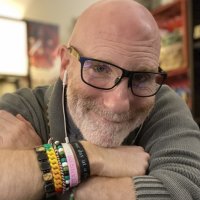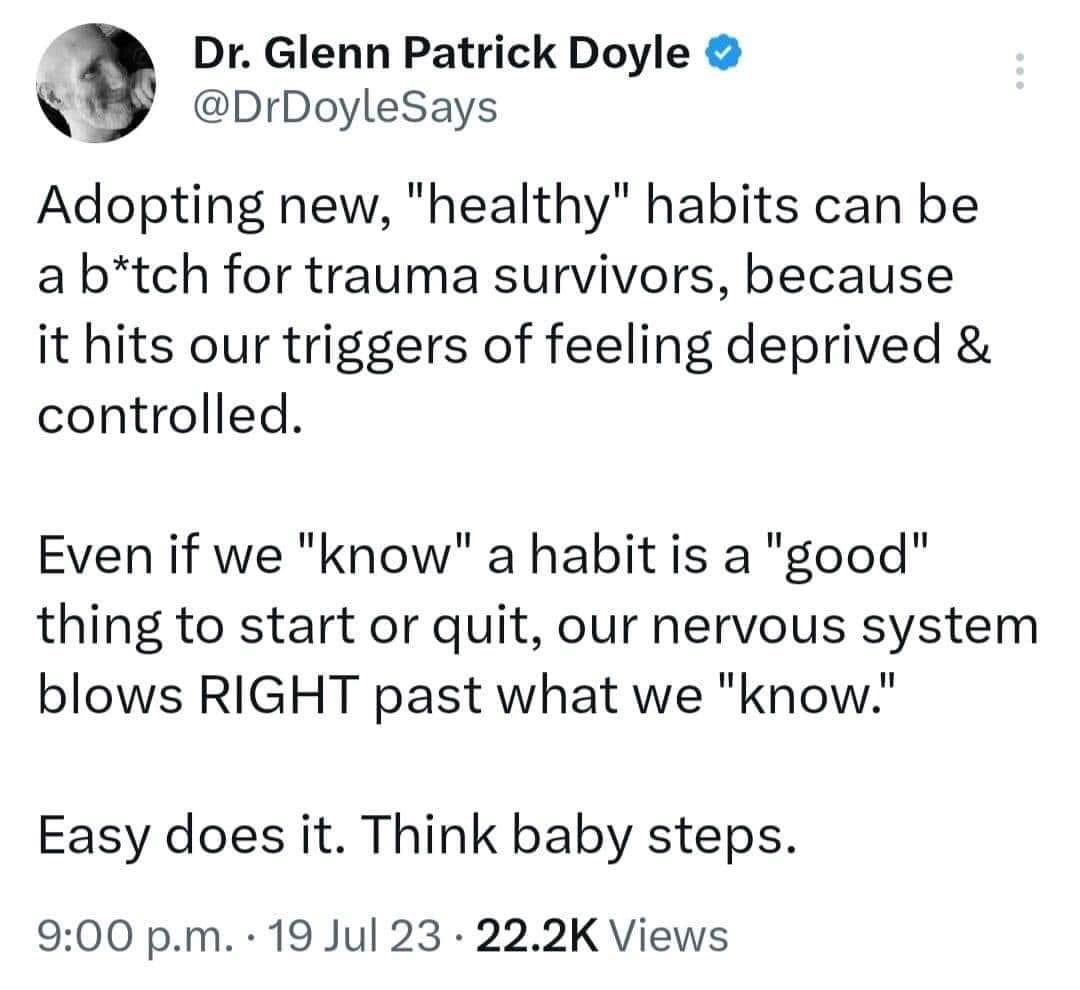
Dr. Glenn Patrick Doyle
@drdoylesays
Psychologist; @SEEKSafely Board President; marathoner. Realistic, sustainable trauma & addiction recovery.
One day at a time.
ID: 854484575724212224
https://linktr.ee/drglenndoyle 18-04-2017 23:59:33
33,33K Tweet
90,90K Takipçi
963 Takip Edilen




